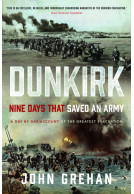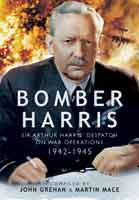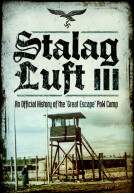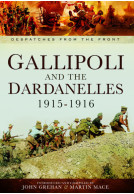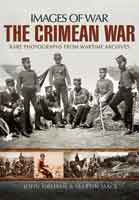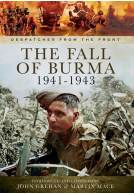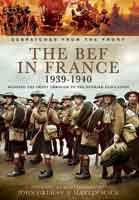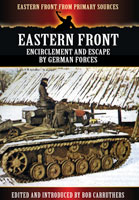Operations in North Africa and the Middle East 1939-1942 (Hardback)
Tobruk, Crete, Syria and East Africa
Imprint: Pen & Sword Military
Series: Despatches from the Front
Pages: 312
ISBN: 9781783462179
Published: 4th February 2015
(click here for international delivery rates)
Order within the next 11 hours, 11 minutes to get your order processed the next working day!
Need a currency converter? Check XE.com for live rates
| Other formats available - Buy the Hardback and get the eBook for free! | Price |
|---|---|
| Operations in North Africa and… ePub (8.3 MB) Add to Basket | £6.99 |
Despatches in this volume include that on operations in the Middle East August 1939 to November 1940 by General Sir Archibald P. Wavell, Commander-in-Chief, Middle East; the despatch on operations in the Middle East February 1941 to July 1941, by General Sir Archibald P. Wavell, Commander-in-Chief, Middle East; operations in the Middle East July 1941 to October 1941, by General Sir Claude J. E. Auchinleck, Commander-in-Chief, Middle East; operations in the Middle East November 1941 to August 1942, by General Sir Claude J.E. Auchinleck; Operations in Middle East 16 February 1943 to 8 January 1944 by General Maitland Wilson.
This unique collection of original documents will prove to be an invaluable resource for historians, students and all those interested in what was one of the most significant periods in British military history.
This is another in the excellent series from Pen and Sword on the Despatches From The Front series.
ARRSE - Auld-Yin
A very comprehensive set of Despatches covering the fighting on land, sea and in the air post El Alamein and up to the Sicilian landings. The reports are, as one would expect, very dry and official with the human element virtually written out of the documents. The point of these documents is to have a record of events and how they were met and dealt with, which these Despatches do very well.
This is not the book for the casual reader, but anyone with a grounding in the actions in the Mediterranean area will get a very good overview of the actions as seen by the Commanders.
3.5
An interesting series, and an interesting book.
FSAddon
The book is made up of copies of the despatches by General Wavell and General Auchinleck to the then Secretary of State for War back in the UK. Reports of what happened and why. Wavell sent his on December 10th, 1940, June 21st, 1941 and September 5th, 1941. The much longer despatches by Auchinleck were sent March 8, 1942 and January 27th, 1943.
All of the reports were submitted many months after the actual operations took place and covering a lengthy period each. Written by the supreme commanders they provide an insight on what they saw as important, from their highest level in the field, and the issues they had to cope with.
The reports are very detailed and often provide long lists of units and their numbers and commanders and places.
You will need patience to read this book, and in-depth knowledge of the African and Middle East campaigns will most certainly help a lot. Me, I am still digging into that area and will undoubtedly come back to the book after having read a few others on the subject.
This is another volume in the fine series of unabridged despatches, collected to cover specific campaigns. Authorship is always a tricky area with this type of book. The authors have done much more than an editor would to create a credible collection of primary source material and have provided the essential introductions. The text material is complemented by a good photographic illustration in the form of a photo-plate section. This type of book is a must for researchers, writers and well-informed enthusiasts, It is also essential reading for military professionals. However, it is a very readable work that provides fascinating insights from those who were in command and should appeal to a much wider readership. Recommended.
FIRE Reviews
The period covered is the closing stage of German expansion. It may seem like yet another list of reverses for British forces and their limited allies, but it is a period when time was bought to prepare to turn the tide against the Germans. Within the retreats and evacuations, there were also magnificent rearguard actions and the Germans suffered their own reverses. The British may have left Crete, but the German airborne forces were never to recover from the invasion of Crete. Tobruk provided some determined defence against the German siege and tied down disproportionate German resources, probably costing the Afrika Corps capture of the Suez Canal.
The British managed to hang on in Malta and Tobruk against what should have been overwhelming odds. Although Tobruk was to eventually fall, it cost the Germans dear. Malta was to prove an expensive failure for Italian and German arms, but it did so much more than just resist. Torpedo and gun boats operated out of Malta, interdicting the German supply convoys taking vital supplies to Rommel. They were ably assisted by aircraft and submarines that also operated out of Malta.
By the Battle of El Alamein, Axis operations in the Mediterranean and Middle East theatres were at risk. The period of expansion had ended and the Allies were about to begin the process of rolling the Axis Forces back. This book contains the despatches that show how Allied commanders saw the developing situations from the information then available to them.
Another interesting addition to this collection of wartime reports from Commanders to their superiors... I find these collections of original despatches to be fascinating to read.
Military Modelling
The detail of the operations the book covers is not to be found elsewhere.
Britain at War
About John Grehan
JOHN GREHAN has written, edited or contributed to more than 300 books and magazine articles covering a wide span of military history from the Iron Age to the recent conflict in Afghanistan. John has also appeared on local and national radio and television to advise on military history topics. He was employed as the Assistant Editor of Britain at War Magazine from its inception until 2014. John now devotes his time to writing and editing books.
About Martin Mace
Martin Mace has been involved in writing and publishing military history for more than twenty years. He began his career with local history, writing a book on the Second World War anti-invasion defences in West Sussex. Following the success of this book, he established Historic Military Press, which has published a wide range of titles. Having launched Britain at War Magazine, he has been its editor since the first issue in May 2007.










